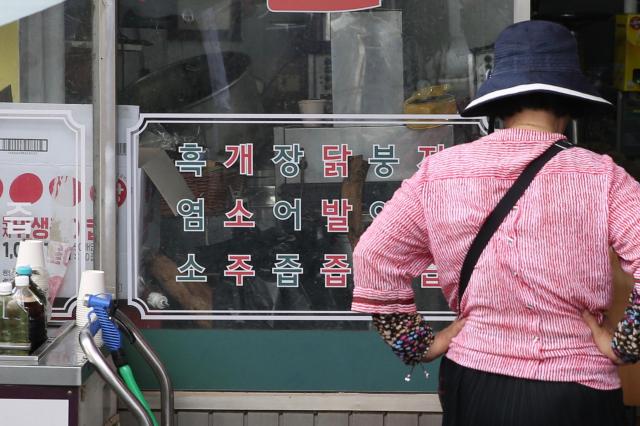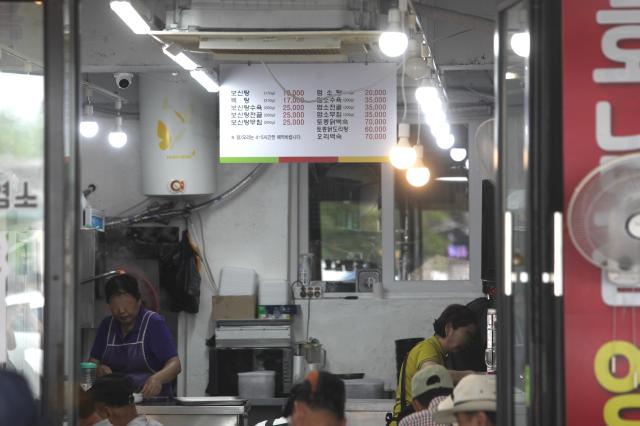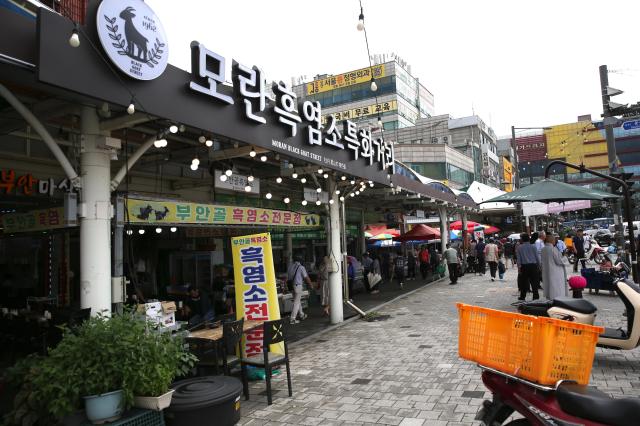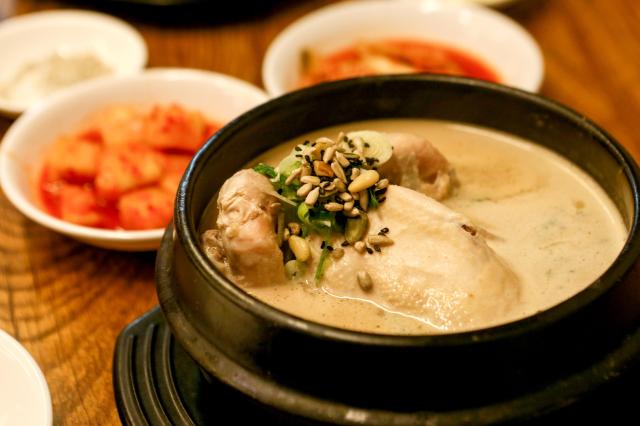
One of the dishes traditionally eaten to celebrate these hottest summer days used to be dog meat soup, known as bosintang. It was believed to replenish energy and maintain stamina.
But this ritual of eating man's best friend has become increasingly controversial, with many arguing that it is no longer appropriate for a modern society. Amid these changing perceptions, the custom is waning and now officially set to end in Korea, as a new law prohibiting the breeding, slaughtering, distribution, and sale of dogs for consumption was passed by the National Assembly in January this year and will take effect in 2027.
Moran Market in Seongnam, just south of Seoul, has been the biggest distributor of dog meat since the 1960s. At its peak in 2001, there were approximately over 50 eateries serving it. However, mindful of the global attention coinciding with Seoul's co-hosting of the World Cup with Tokyo the following year, the country tried to voice out against the controversial custom of eating dog meat, raising awareness about animal rights. That has led to a gradual decline in the dog trade since then.
The open-air market's butchers and vendors agreed to stop detaining or killing dogs for sale and to demolish all slaughtering facilities in 2016 after negotiating with the local government, which pledged to assist them with transitioning to other lines of business and provide low-interest loans to help them open mom-and-pop stores or look for other options.
Reflecting these developments, just a day before Jungbok, the second of Sambok late last month, the market was eerily quiet, with only about a dozen vendors still selling dog meat soup, while others had switched to running different eateries.
A restaurant owner surnamed Kim, who requested anonymity because he does not want to be recognized as a dog meat seller, spoke about his bleak future ahead.
"All the merchants here, including me, are well aware that our days in this business are numbered, although we hoped to hang on for at least a few more years," said Kim, who has been at the market since 1989.

"Beef, chicken and pork are acceptable for TV ads and street banners. But have you ever seen ads for dog meat on TV? That shows how strongly dog meat is tabooed here," he said.
"I fully understand Koreans' changing perception on dog meat, so I don't blame them as it reflects respect for man's closest friend and respect for life," he admitted. "But not eating dog meat and legally banning it are separate matters."
Kim confessed he never felt proud of his job, not even to his family members. "Some people said I smelled like a dog. Dogs that caught my scent sometimes actually followed me on the street," he recalled. He added that no one can proudly say, "I sell dog meat." But Kim said, "I was able to raise my children by enduring this job. But I feel sorry for being a dad who sells it."
Koreans' perceptions of dog meat, in fact, have changed dramatically over the past decades. In a 2002 survey of about 1,500 people conducted by the Journal of the Korean Society of Food Science and Nutrition, 85 percent of respondents said they did not mind eating dog meat. But a similar survey released last year by AWARE, a research institute for animal welfare, revealed that over 90 percent of respondents gave the exact opposite answer.
In March this year, the Korea Dog Breeding Farming Corporation filed a petition with the Constitutional Court of Korea against the law prohibiting dog meat, arguing that it infringes on the freedom to choose one's occupation and the right to eat the food of one's choice.
It is unlikely to turn the tide, however, as the country's seasonal eating habit that has persisted for hundreds of years gradually fades away. In fact, most of external signs and banners associated with dog meat soup have vanished from restaurants and shops at the market, though the dish is still being sold there.
Now the first thing visitors encounter upon entering the market's main alley is the sight of goat meat soup, which is quickly replacing dog meat soup as a hearty meal alternative with similar taste and texture.
"Customers looking for goat meat soup began to rise dramatically early this year, following the passage of the ban on dog meat," a staffer at a restaurant told Aju Press. "These days, nine out of ten customers order goat meat soup."

"All businesses and establishments involved in dog meat, including farms, slaughterhouses, distributors, and restaurants, are required to submit their plans for voluntary closures by this month or face fines of up to 3 million won (US$2,200)," said a ministry official earlier this week.
Once the ban takes effect in February 2027, violators will face more severe penalties including up to three years in prison or fines of up to 30 million won ($22,000).
Copyright ⓒ Aju Press All rights reserved.



View more comments